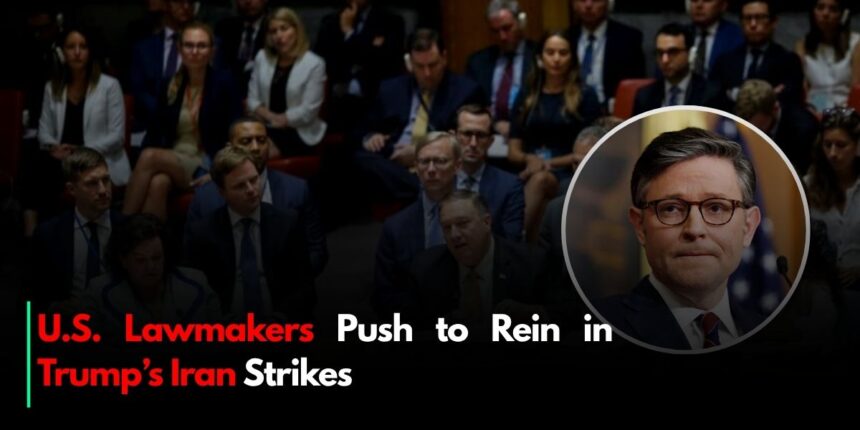A increasing number of U.S. politicians from both parties are asking Congress to take a strong stand after President Trump’s recent missile strikes on Iranian nuclear targets. They say that the Constitution’s war powers clause says that Congress must approve any further escalation beforehand.
Constitutional Authority Under Review
Senator Tim Kaine (D-VA) is at the centre of the argument. He has put forward a bill in the Senate that would require President Trump to get permission from Congress before starting any more hostilities against Iran. His resolution could be voted on this week, and Bernie Sanders, a fellow Democrat, supports it. This shows that they are both worried about the president going too far.
There is a comparable bipartisan resolution in the House that is co-sponsored by Representatives Thomas Massie (R-KY) and Ro Khanna (D-CA). They also say that taking military action against Iran without the approval of Congress would go against the Constitution’s separation of powers.
Differences in Congress
Even though many people are worried, the proposed resolutions have a long way to go. The Republican-led Congress probably won’t back moves to curtail the president’s war powers. Still, a tiny number of Republican members, including Massie, have joined Democrats in calling for accountability. Senator Kaine said he hopes that even a few Republican senators would support his plan since he has good legal arguments and public opinion is shifting towards diplomacy than war.
What the Constitution says and past experience
Advocates of the resolutions could point to the War Powers Resolution of 1973, which states that presidents must seek authorization for hostile actions from Congress, if those actions would likely last more than 60 days. Still, lawmakers agreed that coverage for attacks against Iran went beyond previous experience and that, even with the informed and unequivocal disregard of this statute by erstwhile administrations, warranted Congressional oversight and authorization.
Washington Speaks Out
Senator Kaine said on CBS’s “Face the Nation” that “there was no imminent threat” that would need unilateral action. He also warned that mistakes like those made in the Iraq War may happen again. Representative Massie said the same thing: Congress shouldn’t have been left out: He said, “We should have talked about this instead of ignoring it.”
Some Republicans, like Senate Majority Leader John Thune and Speaker Mike Johnson, have backed Trump’s choice, saying they were told about it ahead of time. They say that because of urgent national security issues, the President was acting within his rights under Article II of the Constitution.
Bigger Effects
The clash between these two entities has implications for a larger, on-going debate about who has authority in foreign policy. This debate is especially important for Americans this election year while tensions are flaring across the Middle East. Is it appropriate for the president to have the ability to declare war, and speak on behalf of U.S. interests, without the authority or permission of Congress; or should we let Congress, as the People’s House, to use the rules of democracy to check and create a legacy of checks and balances for the people?
For a people who are tired after decades of warring, Americans seem to still embrace even the diplomacy of war according to survey research, so much as to evidence that Americans diplomatic wars travel broadly and show they have become maximized with hauteur being inflated by even waning global esteem of U.S. diplomacy to under performance.This is similar to the gap in public opinion. People inside and outside of Congress are more and more calling for prudence and clarity before the US becomes involved in another overseas issue.
Final Word
As the confrontation between Iran and Israel gets worse, MPs who want to uphold Congress’s constitutional responsibility are gaining ground. If they succeed, it will change not only U.S. policy towards Iran but also the basic limits on presidential war powers.
In the next few days, Congress will feel more and more pressure to act, or they will risk setting a big precedent for military power. The conclusion might change not only the current crisis but also how the US deals with conflict in the future.








